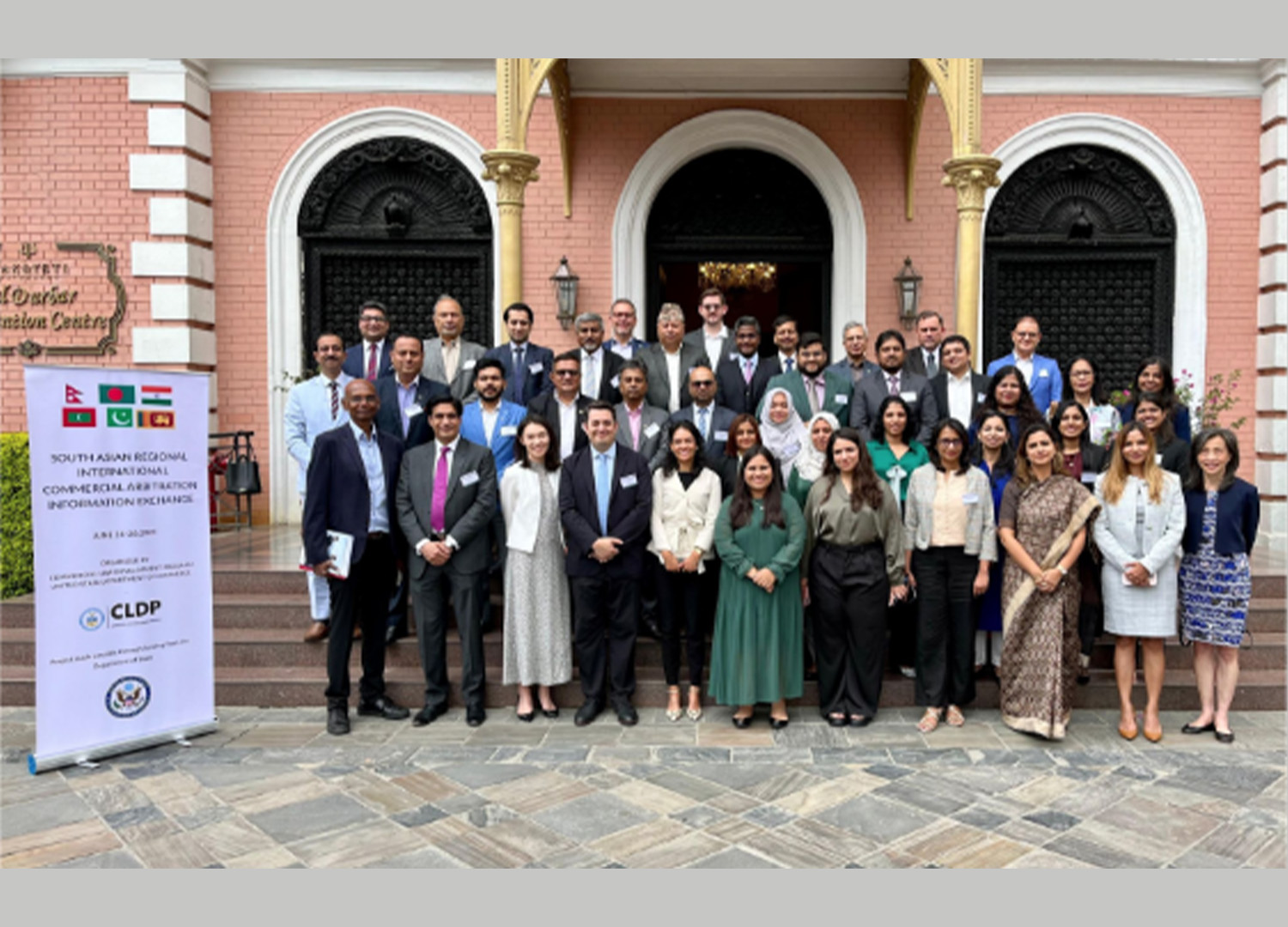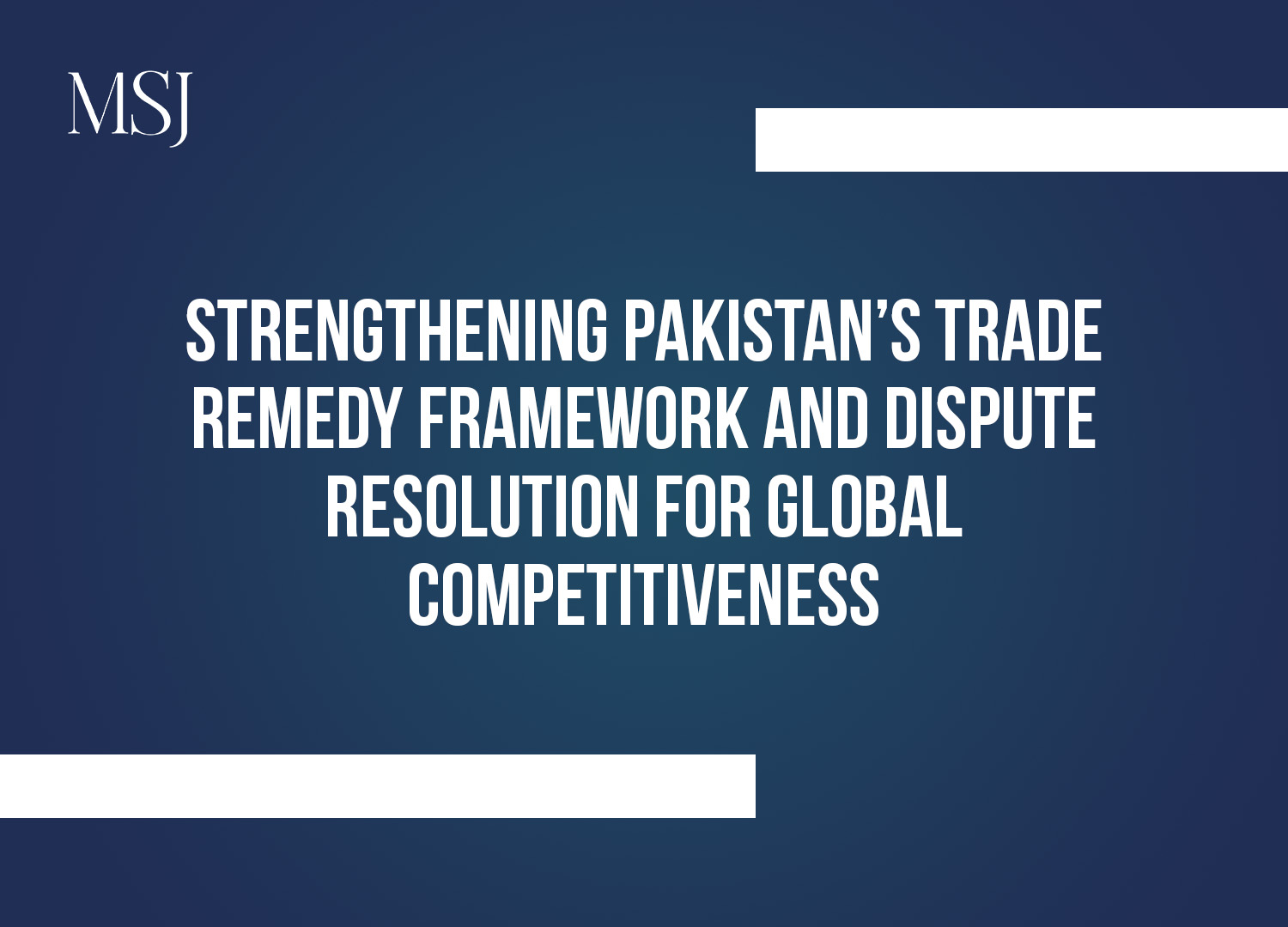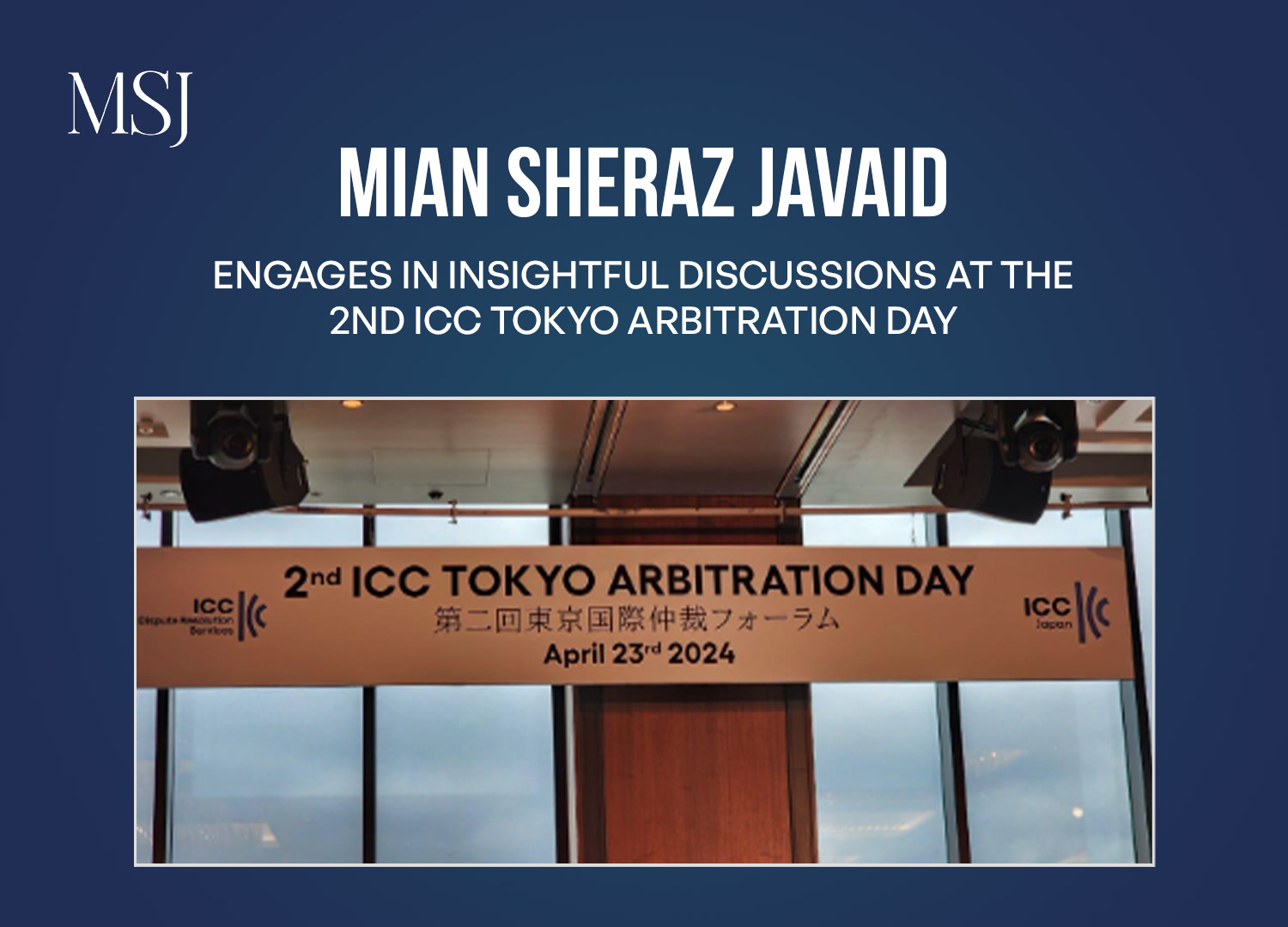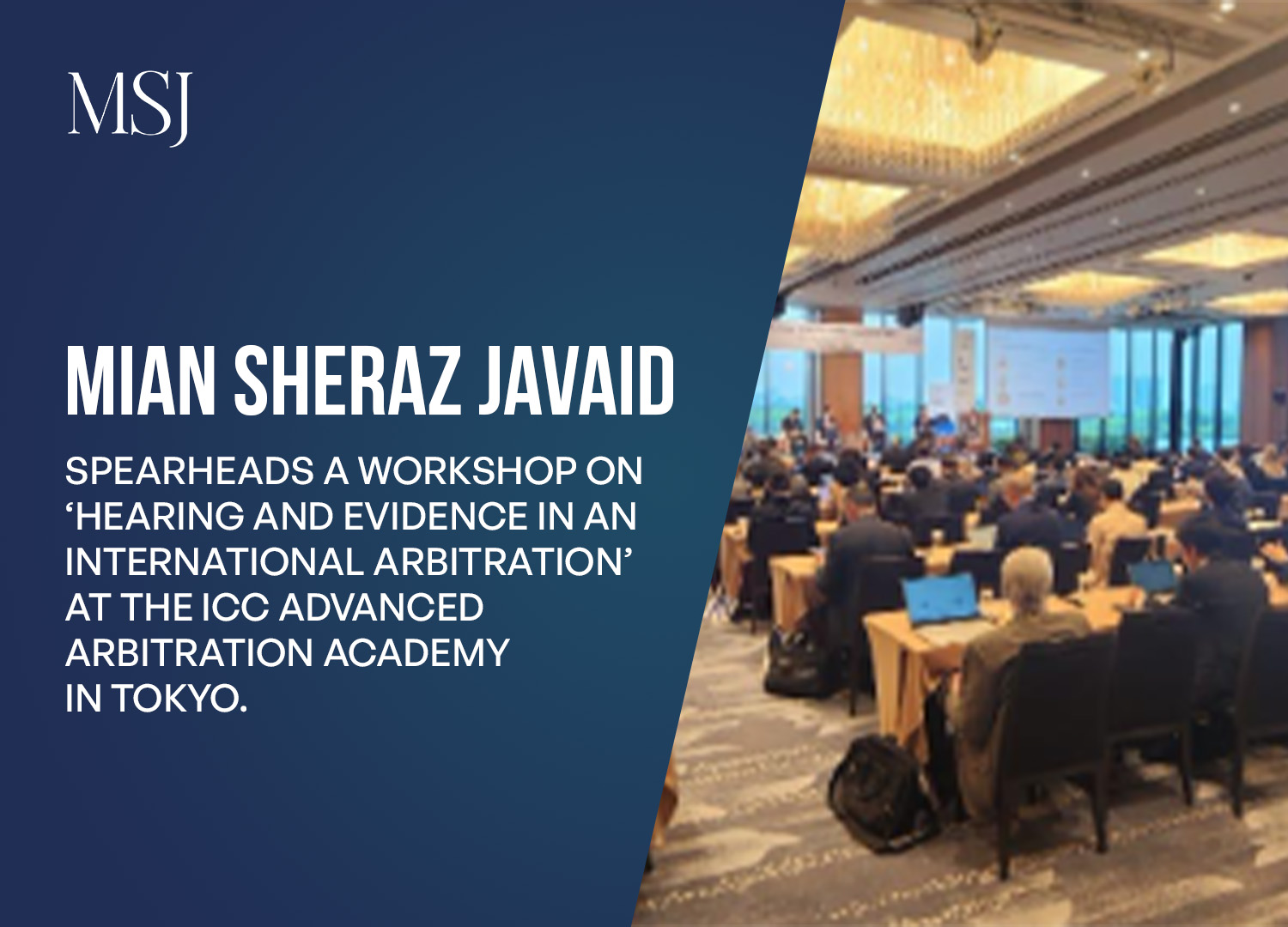Mian Sheraz Javaid Concludes First Session of Ciarb’s International Arbitration Course in Islamabad
This session, introduced by the Chartered Institute of Arbitrators, walks the participants through a comprehensive step-by-step presentation of the key stages involved in arbitration proceedings. From here, during the rest of the course, key topics will be covered, including arbitration agreements, appointment of tribunals, pleadings, evidence, hearings, and arbitral awards. Sheraz's delivery method for this course is based not only on theory but also on practice, as it illustrates how arbitration functions in real-life international disputes and thus equips participants with the best ways to deal with complex cases.
Laying the Groundwork for International Arbitration Knowledge
The objective of Session 1 was to create a solid base for participants to understand the arbitration process. Sheraz's structured approach ensured that participants gained insights into the fundamental components of international arbitration, giving them the tools to navigate the complexities of cross-border disputes.
“We focused on building a clear understanding of the arbitration process from the very beginning,” Sheraz explained. “Participants gained foundational knowledge of how international arbitration works and what key elements are essential in ensuring that a dispute is handled effectively and fairly.”
It started by discussing arbitration agreements, which happen to be the foundation of every arbitration procedure. Sheraz mentioned how an arbitration clause should be framed in such a way that international standards are achieved, thus having enforceable agreements and enabling resolution of disputes through fair and efficient methods.
Participants were further enlightened about the appointment process of arbitral tribunals, which plays a crucial role in making the whole resolution process unbiased and fair. Sheraz expertly enlightened the participants on how the tribunals are appointed, who is an arbitrator, and what constitutes diversity and competence among the members.
Practical Insights into Arbitration Practice
Beyond theoretical understanding, the course also focused on providing participants with practical insights into managing the various stages of arbitration. Sheraz’s real-world experience in handling arbitration cases provided participants with valuable knowledge on how arbitration actually operates in the context of international disputes.
The session included very extensive discussions regarding pleadings and evidence, particularly on the importance of clear, concise, and well-documented claims and counterclaims. Participants were briefed on the rules that govern how evidence is to be submitted and presented, as well as how one can manage the testimony of experts and how it should be represented in a way that strengthens one's case.
Sheraz further explored procedural aspects of hearings, which would clarify the structure of the hearing and best practices for conducting the hearing. The seminar ended with a comprehensive overview of the process behind the issue of arbitral awards. This mainly clarifies the standards and procedures involved in finalising any dispute resolution and how to ensure that such awards are enforceable in other jurisdictions as well.
Building a Strong Pool of Arbitration Experts in Pakistan
Mian Sheraz Javaid’s leadership in delivering this course is part of a broader initiative to develop a robust pool of arbitration experts in Pakistan. As the country continues to grow as a key player in international trade and investment, the demand for qualified professionals capable of handling complex international disputes is increasing.
“The goal of this training program is not just to impart knowledge but to cultivate a strong network of arbitration professionals in Pakistan,” Sheraz said. “By providing legal practitioners with a comprehensive understanding of international arbitration, we are strengthening Pakistan’s capacity to resolve disputes efficiently and independently.”
The course is therefore designed to make sure that the legal professionals in Pakistan are adequately prepared for the increasing volume of international disputes that are associated with cross-border trade and investments. It is through the ability to resolve disputes through arbitration that Pakistan is being positioned as a credible jurisdiction for international businesses that seek a neutral and effective mechanism for conflict resolution.
Enhancing Pakistan’s Global Role in Arbitration
This initiative is part of a larger effort to position Pakistan as a key player in the global arbitration landscape. With a growing number of multinational corporations investing in Pakistan and engaging in international trade, the ability to effectively resolve disputes through arbitration is becoming increasingly important.
Sheraz’s training programs are helping to elevate Pakistan’s reputation as a reliable hub for international arbitration. By providing legal professionals with a deep understanding of global arbitration standards and practices, Sheraz is ensuring that the country’s legal infrastructure is ready to meet the demands of international dispute resolution.
“These training programs are crucial in developing the expertise required to handle international disputes, which are becoming more complex as global trade and investment continue to increase,” Sheraz stated. “By preparing professionals to manage these disputes effectively, we are contributing to the growth of Pakistan’s legal sector and positioning the country as an important player in the global arbitration arena.”
A Vision for Pakistan’s Arbitration Future
The future looks bright as Sheraz and Ciarb Pakistan Branch have promised to further expand the scope and reach of their training sessions. Sessions will be built on the foundation set in Session 1, which will take a deeper dive into advanced topics and more complex arbitration issues. Ultimately, it is a long-term goal to develop a network of arbitration professionals throughout the country who can deal with international high-stakes disputes with competence and confidence.
“We are just getting started,” Sheraz emphasised. “Our vision is to ensure that Pakistan has a strong, well-equipped pool of arbitration professionals who can manage the growing volume of international disputes. This will not only help strengthen Pakistan’s legal sector but also create an environment where international businesses feel confident in engaging with the country’s legal system.”
His work is part of a much broader movement in Pakistan to establish itself as the premier arbitration centre in the region. Continuing to build and expand his training programs will ensure that Pakistan remains a world leader in international dispute resolution, well equipped to address the challenges arising from an increasingly globalised economy.
Conclusion
Mian Sheraz Javaid’s work in advancing arbitration education in Pakistan is playing a key role in strengthening the country’s legal and economic infrastructure. By leading the Ciarb Module 1 course on "Law, Practice & Procedure of International Arbitration," he is providing legal professionals with the skills they need to handle complex international disputes, positioning Pakistan as an emerging leader in global arbitration. With continued growth in international trade and investment, the need for skilled arbitration professionals will only increase, and Sheraz’s training initiatives are ensuring that Pakistan is well-prepared to meet this demand.








